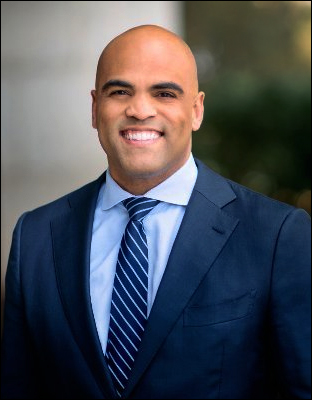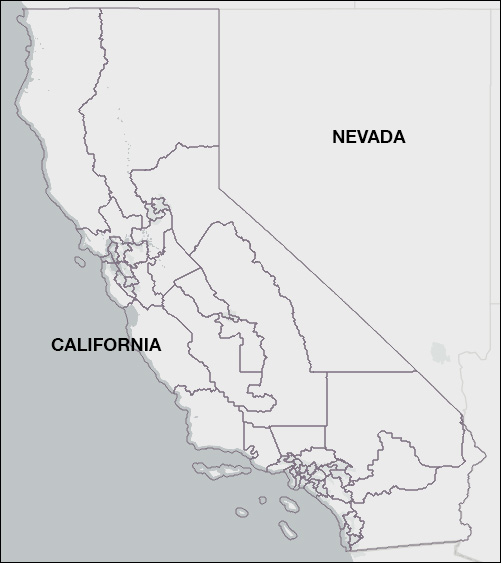By Jim Ellis — Friday, May 12, 2023
Senate
Texas: Rep. Allred Unlikely to Have Free Ride — Last week, Texas Rep. Colin Allred (D-Dallas) announced that he would enter the 2024 Senate race to challenge two-term incumbent Sen. Ted Cruz (R). At that time, most believed Allred would be virtually unopposed for the Democratic nomination.Previously, state Sen. Roland Gutierrez (D-San Antonio) indicated an interest in challenging Sen. Cruz, but he largely became a second thought when Rep. Allred declared his candidacy. Most then believed that Gutierrez would not force a Senate nomination campaign. However, the senator indicated Wednesday that he in fact is still considering launching a US Senate campaign and is headed toward becoming a candidate.
Coming from the district that houses the city of Uvalde, the site of the tragic 2022 school shooting, and the Del Rio community, where most of the illegals are entering the country on the Texas border, Sen. Gutierrez certainly represents some of the hot points in Lone Star State politics. Rep. Allred would still be favored to win the party nomination but adding Sen. Gutierrez to a competitive Democratic primary would certainly add spice to this intra-party campaign.
House
CA-40: Rep. Kim Attracts New Opponent — Retired Fire Captain Joe Kerr (D), who drew only 11 percent of the vote in a 2022 state Senate race in another part of Orange County, announced that he will now challenge two-term Rep. Young Kim (R-La Habra) next year. Rep. Kim defeated physician Asif Mahmood (D) 57-43 percent in a district that was 80 percent new territory from the 39th District in which she had originally won her first congressional election.
While it is clear the Democrats will need a stronger candidate to oppose Rep. Kim than Dr. Mahmood, it is probable that Kerr is also not the type of candidate who can unseat this more than capable Republican incumbent.
CA-49: A New Opponent for Rep. Levin — In both California’s 40th and 49th Congressional Districts, we see two candidates who lost the same 2022 state Senate race venturing into congressional contests. Auto dealer Matt Gunderson (R), who lost the general election to State Sen. Catherine Blakespear (D-Encinitas), says he will challenge Rep. Mike Levin (D-San Juan Capistrano/La Jolla) in a CD that closely resembles the state legislative seat where he received 48 percent of the vote last year.
The 49th CD that stretches from Orange County south into San Diego, is a politically marginal district. The FiveThirtyEight data organization assigns a D+5 rating, while Dave’s Redistricting App calculates the partisan lean at 52.0D – 46.0R. Rep. Levin has three times defeated ex-San Juan Capistrano mayor and councilman Brian Maryott (R). In 2022, the margin was 53-47 percent. While clear the Republicans need a new candidate to compete in this district, it remains to be seen if Gunderson can wage an effective enough campaign to unseat the three-term incumbent.
NY-4: Re-Match Forming — Freshman Long Island Republican Congressman Anthony D’Esposito (R-Island Park) holds — along with California Rep. David Valadao’s (R-Hanford) 22nd District — the most Democratic seat in the country that elects a Republican to the House. Now, it appears that he will be facing a re-match with the woman he defeated in 2022, former Hempstead Town Supervisor Laura Gillen (D). The 2022 result was 51-47 percent in D’Esposito’s favor.
Long Island’s 4th District includes the town of Hempstead and the Garden City, Oceanside, Freeport, and Valley Stream communities among others. The FiveThirtyEight data organization rates the seat as D+10. Dave’s Redistricting App calculates the partisan lean at 59.6D – 38.9R. President Biden carried the district with a 56.8 – 42.2 percent margin, which suggests that Rep. D’Esposito has a difficult road to re-election in a presidential election year.






